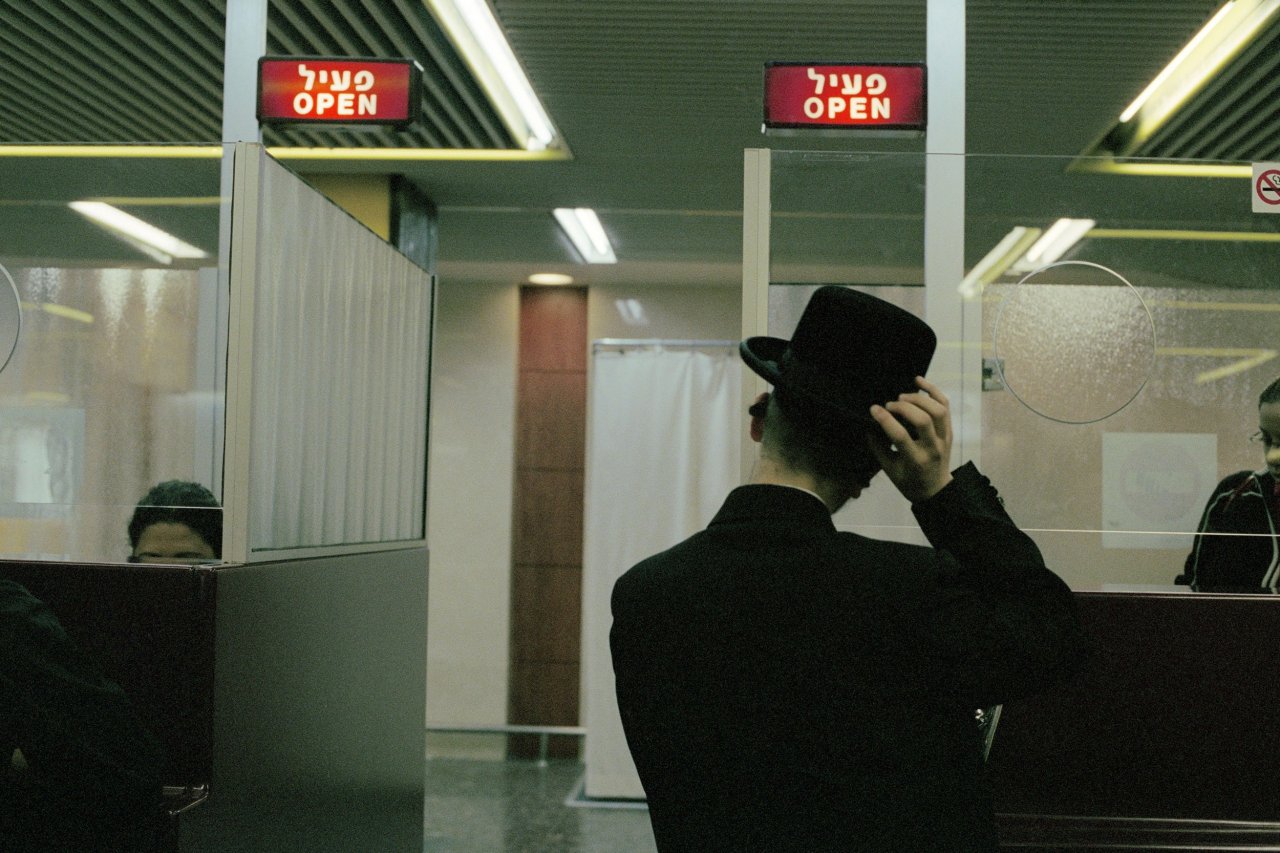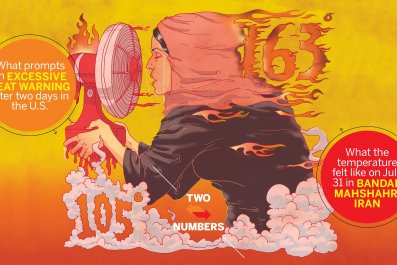Last year, Hadas Kedar dug through the drawers in her parents' apartment, looking for proof of her family's life in Hungary during the 1920s. Eventually, she found several birth certificates and elementary school diplomas, put them in a folder, then sketched out a family tree and brought the paperwork to the Hungarian Embassy in Tel Aviv, Israel. Like thousands of Israelis, Kedar, a 50-year-old artist, is hoping to acquire European citizenship. Yet her application is unique—and symbolic: She is related to Theodor Herzl, the Hungarian-born journalist who was the founding father of the Jewish state.
In July, not long before the country was set to commemorate the 111th anniversary of Herzl's death, I visited Kedar at her apartment, situated near Herzl Street in central Tel Aviv. As we sat in her living room, overlooking the beach, Kedar showed me a highlighted copy of Herzl's published diary. She cherishes the text and doesn't see a contradiction between Herzl's ideas and her desire for EU citizenship. "His words were misused," she says. "His vision was taken over by right-wing political parties." An ardent liberal and supporter of a Palestinian state, Kedar made her decision out of frustration: The Israeli occupation seems firmly entrenched, the peace process irrevocably stalled. And in the near future, she and many others expect Israel to fight another war with radical Islamists in the region. "I wanted to open up options for me and my sons," she says. "I am not sure Herzl would have liked to be in Israel himself these days."
Kedar's left-wing views are in the minority in Israel, but her pursuit of dual citizenship has become more mainstream. Over the past 15 years, as the European Union has expanded while terrorism and war have continued to plague the Jewish state, Israelis have been rushing to acquire citizenship from the countries their relatives fled before and after the Holocaust. The Spanish government announced in July that it would grant citizenship to descendants of Jewish families that the nightmarish Inquisition in 1492 forced out, a move that is expected to bring even more applicants for a darkon zar, Hebrew for "foreign passport."
Between 400,000 and 500,000 Israelis have a European passport, says Yossi Harpaz, a doctoral student at Princeton University, more than double the estimated figure in 2000. Add that to the 500,000 Israelis who already have American, Russian and/or other passports, and that's about 1 million people, or roughly 1 in 8 Israelis, who have dual citizenship. Roughly 75 percent of the country is Jewish, and of that figure, nearly half trace their lineage to Europe. (The other half, known here as mizrahim, come from the Middle East and North Africa.) So for many Israelis, it seems the real two-state solution means holding a second passport.
This doesn't, however, mean that a large number of Israeli Jews will return to Europe for good. In fact, roughly the same number of Jews come to Israel each year as leave the country. Israelis acquire foreign passports in record numbers but seem to keep them for time of need; actual migration from Israel has not changed substantially. "I wouldn't rush to call it the end of Zionism," says Harpaz, "but it means that there is a different way to be Israeli." Yet some politicians warn that under the continued threat of terrorism, or the rise of a nuclear Iran, future generations of Israelis will eventually choose to leave. "I think the phenomenon is connected to the lack of security that Israelis often feel about the future of the country," says Ofer Shelah, a prominent member of the Knesset for the centrist Yesh Atid party. "I thought the state of Israel was created partly in order to release us from the historic fears of the Jewish people, but it seems they are still there."

Since the founding of Israel in 1948, the country has faced a variety of threats—from an attack by Egypt and Syria during the 1973 war to suicide bombings in nightclubs and cafés in the 1990s and 2000s. Today, roughly a year after the war in Gaza, the crowded coastal strip is quiet, but Israel's security seems more precarious than ever. Despite the recent nuclear deal between Iran and six world powers—or perhaps because of it—many Israelis fear Iran will acquire nuclear weapons. Closer to home, ISIS militants (and their proxies) have closed in on Israel's borders with Egypt and Syria. Palestinian attacks have created havoc in Jerusalem, and to Israel's north, Hezbollah has roughly 100,000 rockets aimed at the Jewish state. As one European diplomat tells me, speaking on the condition of anonymity: "The minute there is a war with Gaza, I start to get calls from Israelis with dual citizenship wondering if my government will evacuate them in time of need."
In his research, Harpaz found that the main reasons Israelis want a foreign passport are to have an insurance policy for the next war, to be able to study abroad and to possess it as a status symbol. "Unlike in other countries," he says, "the security rather than the economic situation seems to play a major role in the wish for foreign passports."
Not every Israeli with a foreign passport wants to leave, however. Sometimes, the opposite is true. In recent years, the number of foreign passport holders has grown in Israel in part because of the influx of French Jews fleeing anti-Semitism in Europe; 7,300 moved to Israel last year, according to data provided by the Jewish Agency for Israel. And after the terror attacks in January on Charlie Hebdo and a kosher supermarket in Paris, the number is expected to reach an all-time high this year.
On a recent Friday morning, I met some young Israelis waiting outside of the Polish Embassy in Tel Aviv. Among them: Maya Herzberg, a 28-year-old law student. She has been to Poland once, during a Holocaust remembrance trip in high school. "If Poland was not in the EU," she says, "I would have never done it. But this pass gives me an option to stay anywhere in the EU, and I am thinking of doing my master's somewhere in Western Europe."
Herzberg's mother, Sarah, is more concerned about her daughter's safety. "Things are not getting better here," she says, "and we wanted to take care of our daughters if Israel will become a dangerous place to live."
Scenes like this could soon be replicated outside of the Spanish embassy. The number of potential applicants, according to Israeli estimates, is several hundred thousand, a figure that includes some mizrahim whose families wound up in Morocco or parts of the Middle East after being kicked out of Spain. But since the process requires showing a cultural connection to Spain, among other things, the number could be substantially lower, say lawyers involved in the application process.
Kedar is expecting her passport any day now. "I have a fantasy," she says, "in which I go back to Budapest with my new passport. I go to the brewery that my family owned, which they sold for cheap before running away. I go there, and I tell them, 'We're back.' We tried living somewhere else for a while. It didn't work out. Let's start over."






















